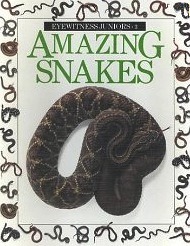Movie: "Harry Brown" (dir. Daniel Barber)
James Boswell, Biographer, Wit, Early Pedicure Fanatic
In James Boswell's London Journal he reports, among other significant doings on Sunday, December 12, 1762: "I had my feet washed with milk-warm water". The editor of my edition, Frederick Pottle, drops the following footnote: "One of Boswell's keenest sensual pleasures."
Vocablog: velleity
velleity, n.
A will or desire that is never acted upon; an idle wish.
(Found in the Kaufman translation of Friedrich Nietzsche's On the Genealogy of Morals.)
Usage example: He talked about becoming a famous chef, but he never once entered a kitchen--it was less a goal than a velleity.
Book: The Warden by Anthony Trollope (1855)
The chief attractions of The Warden are its length--it's that rarity among the Victorians, a short novel--and the relative complexity of its politics. Trollope has a couple of tirades about nineteenth-century reformers in here, directed at progressive newspapers (The Times, dubbed "The Thunderer"), Thomas Carlyle ("Dr. Pessimist Anticant"), and Charles Dickens ("Mr. Popular Sentiment"). Those are amusing to anyone "in the know" about the nineteenth century, but more broadly speaking, these attacks are signs that Trollope cared about the motivations and effects of high-minded political reforms on various lives. He hesitated, in other words, to embrace reform in any simplistic manner. That leaves him open to criticism that he supported the evils of politics-as-usual, but it also means he portrays politics in ways that feel refreshingly three-dimensional.
One drawback of this approach is that there aren't a lot of those "point-and-laugh" moments you get with traditional satire. It isn't, in other words, "fun." There's no exciting crusading here, and no easy right-and-wrong, so the emotional tenor of the novel is smooth and steady instead of compelling. The satire that's left often takes that eighteenth-century form of giving characters unrealistic but revealing names (see above)--the rash reformer's name is "Bold," for example. And while the characters are more complex than their names, they're still sketchily drawn. (The politics may have three dimensions, but the characters mostly have two.) There's little psychological exploration here, but the characters' thinness helps the novel remain slim.
In short, this one is probably for enthusiasts, or for people who have to squeeze in a quick nineteenth-century novel--I can imagine it working in a Victorian Fiction survey. Personally, I took it in poolside, which fit nicely with its untaxing nature.
Vocablog: peculation
peculation, n.
Taking money that is being held in trust for another; embezzlement.
(Found in Anthony Trollope's The Warden.)
Usage Example: Everyone thought Bernie Madoff was engaged in financial speculation, but not peculation.
Vocablog (An Explanation)
Studying literature, especially older literature, often means coming across words you aren't familiar with. I jot these words just inside the covers of the books I'm reading, and all-too-often forget to look them up later--which has led to a massive backlog of interesting words whose meanings I don't know.
One regular feature of Nifty Rictus will be a Vocablog--a chance to look back over these words and find out what they mean. There are plenty of "Word of the Day" Internet modules out there, but in my experience they tend to generate words that are either too basic ("deluge") or too esoteric ("zooxanthellae")--you get the sense that people are pulling the words from dictionaries and science textbooks, not from actual usage. The Vocablog will try to steer a happy medium between these two extremes, focusing on unusual words that are usable by virtue of having actually been used at some point in the not-so-distant past.
Books That Matter: Amazing Snakes
In the past six months, a lot of blogs have been passing around a meme where bloggers list “books that influenced me the most.” The game’s no fun if you don’t play fair…the books that influence you the most aren’t necessarily your current “favorites”—in fact, I don’t think you’re doing the job right if you don’t have some weird or embarrassing things on there. So, at intervals, I’ll be posting books that changed the way I think about life.
This week: Eyewitness Juniors’ Amazing Snakes.

Amazing Snakes, like everything else published by the geniuses at Eyewitness, featured pages dominated by a stunning central image (of a snake, in this case), surrounded by littler pictures and facts—about how many mice could be killed by a drop of the venom of a cobra, how fast a boomslang could strike, etc.
Published in the late ’80s, the Amazing series came along at just the right time to have a massive, lasting impact on my childhood psyche. I’ll never forget the incredible feeling of running up to an adult, squeaking, “Did you know that the Gaboon Viper has the longest fangs of any snake in the world?!” And hearing the crushing humiliation in their voices as they muttered back: “No…I did not.”
That is how I learned that knowledge is power. And that’s probably why I’m pursuing a graduate degree in the humanities today: to become the most powerful person in the world.
How to Kill Your Own Blog
If my old blog taught me anything, it was that the quickest route to blog suicide is lengthy, essayistic posts. I didn’t like the way writing works on the Internet—I still don’t—and I wanted so badly to write micro-essays on a blog.
The thing is, no one has the time or will to read that kind of thing. There were always a few exceptions…but overall, I think it was a failed experiment. The blogs I most admired had long posts like the kind I wrote—and I discovered that I “admired” them, but I never had time to read them. I was always “saving them for later.” I then started “saving for later” my own posts, which always required more and more time, because I was oh-so-afraid of putting things out there that weren’t top notch. That is how a blog dies.
Here’s to quick cultural reflections, and quick personal reactions. Welcome to Nifty Rictus.


